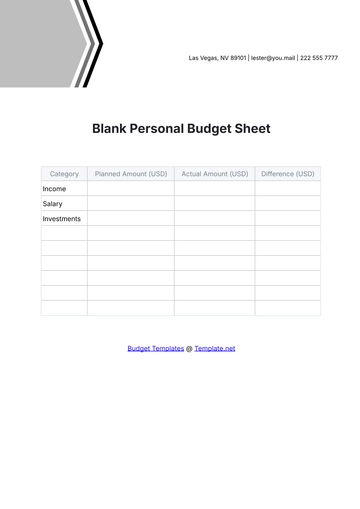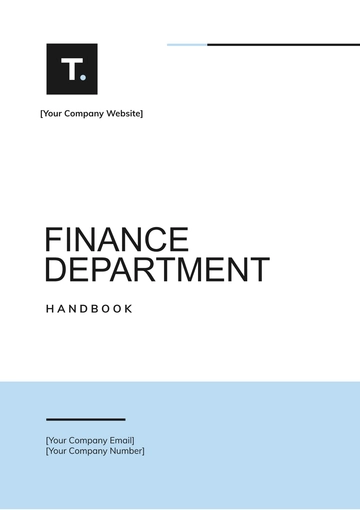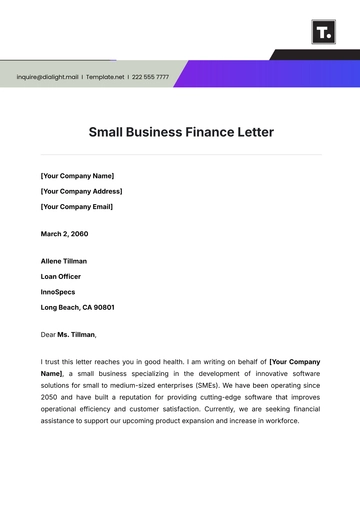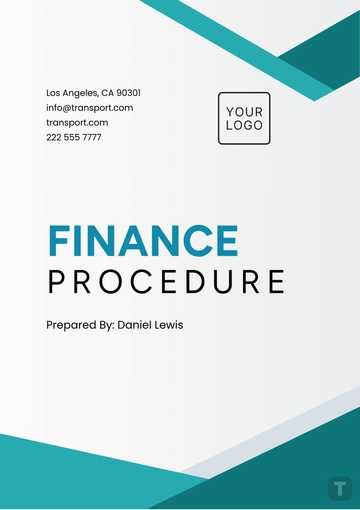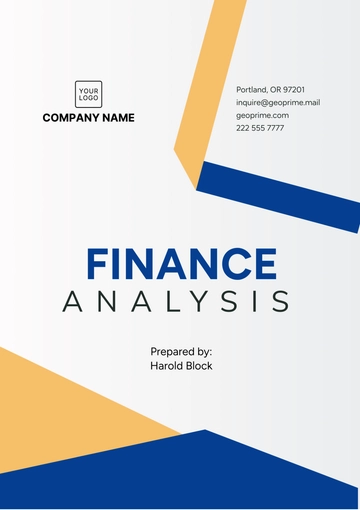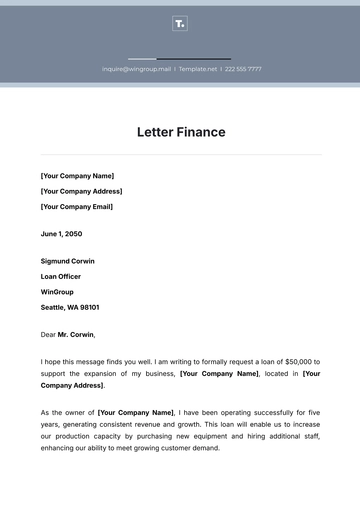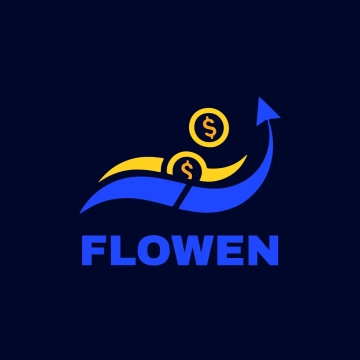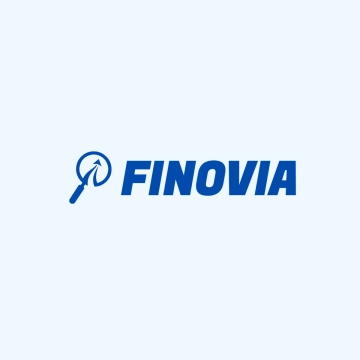Free Financial Policy Management
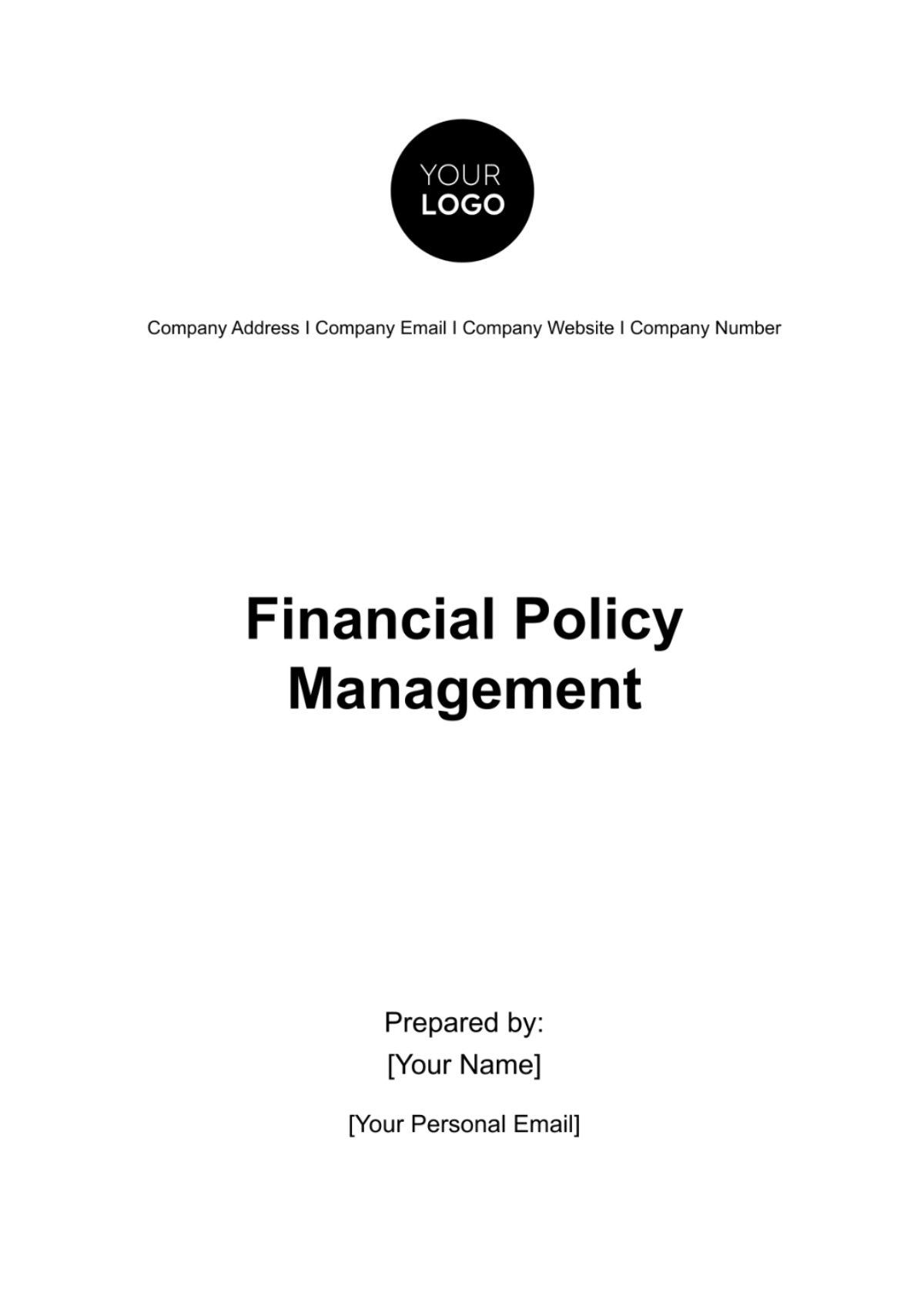
Introduction
Establishing rigorous financial management practices is at the core of a firm's stability and onward journey. This policy outlines [YOUR COMPANY NAME]'s approach to ensuring financial integrity and operation efficiency across all departments. The policy provides clear procedures for budget planning, capital expenditure, expense management, cash management, and legal compliance to uphold our commitment to transparency, accountability and regulatory adherence.
Organizational Structure and Responsibilities
Role | Responsibility |
|---|---|
Senior Management | Approve annual budgets; oversee capital expenditure; ensure compliance; manage risks. |
Budget and Planning Team | Create and monitor the annual budget; identify cost-saving opportunities; report on budget variances. |
Finance Department | Monitor cash flows; manage expenses; prepare financial statements; ensure legal compliance. |
Expense Management
The Expense Management policy is designed to ensure responsible and efficient handling of company expenditures. This comprehensive framework covers the entire expense lifecycle, from incurring and approving expenses to reporting and reimbursement. It emphasizes compliance with internal guidelines and external financial regulations, ensuring that all expenses are necessary, reasonable, and appropriately documented, fostering a culture of accountability and transparency in financial dealings.
Expense Incurring
a. Objective: Ensure expenses are necessary, reasonable, and align with company objectives.
b. Guidelines:
Necessity and benefit to the company.
Adherence to budget limits.
Approval Process
a. Objective: Establish a clear and accountable approval system for expenses.
b. Hierarchy:
Approvals required from immediate supervisors for routine expenses.
Higher-level approvals for significant or unusual expenses.
Expense Reporting
a. Objective: Standardize and simplify the process of submitting expense reports.
b. Procedure:
Use of a standardized expense report form.
Submission deadlines and required documentation (receipts, invoices).
Expense Reimbursement
a. Objective: Ensure timely and accurate reimbursement of approved expenses.
b. Process:
Verification of expense reports.
Reimbursement within a specified timeframe.
Policy Compliance
a. Objective: Adhere to internal and external financial regulations.
b. Monitoring:
Regular audits and reviews of expense reports.
Exception Handling
a. Objective: Manage and resolve exceptions to standard procedures.
b. Process:
Case-by-case review by Finance Department.
Resource Allocation and Budgeting
Resource Allocation and Budgeting provides a structured approach to financial management, ensuring fiscal discipline and alignment with the organization's strategic goals.
Resource | Allocation |
|---|---|
Capital Investment | Allocated on priority basis and ROI evaluation |
Operational Expenses | Allocated based on historical data and future expectations |
Internal Controls and Audit
The Internal Controls and Audit policy is a cornerstone for maintaining financial integrity within the organization. It establishes a robust framework to identify, monitor, and mitigate financial risks. By implementing regular audits, checks, and balances, this policy ensures compliance with financial regulations and standards, promotes operational efficiency, and proactively addresses any financial irregularities, thereby safeguarding the company's assets and reputation.
Risk Assessment
Continuously identify and assess financial risks to establish effective controls and mitigation strategies.
Control Activities
Implement various control measures like segregation of duties, authorization protocols, and transaction verifications to prevent errors and fraud.
Information and Communication
Maintain robust information systems for accurate financial reporting and ensure open channels for reporting concerns or irregularities.
Monitoring Activities
Regularly review and update internal controls to ensure their effectiveness and adapt to new risks or changes in the organization.
Internal Audit
Conduct periodic internal audits to assess compliance with policies and the effectiveness of internal controls.
External Audit Coordination
Facilitate external audits by providing necessary information and addressing recommendations to enhance control systems.
Financial Reporting
The Financial Reporting policy is designed to uphold the highest standards of accuracy, transparency, and compliance in the organization's financial communications. Adhering to recognized accounting principles and regulations, this policy ensures that financial reports reliably reflect the company's financial position and performance, fostering trust among stakeholders and supporting informed decision-making. Below is a list of standards critical for Financial Reporting:
Generally Accepted Accounting Principles (GAAP)
International Financial Reporting Standards (IFRS)
Sarbanes-Oxley Act (SOX) Compliance
Financial Accounting Standards Board (FASB) Guidelines
Public Company Accounting Oversight Board (PCAOB) Standards
Securities and Exchange Commission (SEC) Regulations
Dodd-Frank Wall Street Reform and Consumer Protection Act
Internal Revenue Service (IRS) Regulations
Investment Policy
The Investment Policy is designed to strategically manage the organization's excess funds, aligning investment activities with its overall financial goals. It ensures that investments are made judiciously, balancing potential returns with acceptable levels of risk. The policy encompasses guidelines on permissible investments, risk management, and performance evaluation, fostering responsible growth and financial stability.
Aspect | Details |
|---|---|
Investment Objectives | Define return goals, liquidity needs, and risk tolerance. |
Allowable Investments | Specify permissible vehicles like stocks, bonds, and real estate. |
Risk Management | Strategies for risk mitigation including diversification. |
Performance Review | Regular assessment against benchmarks. |
Investment Committee | Committee overseeing investment decisions. |
Compliance and Reporting | Adherence to legal standards and transparent reporting. |
Compliance and Legal Requirements
The Compliance and Legal Requirements section is pivotal in ensuring that all financial activities of the organization strictly adhere to the relevant laws and regulations. It encompasses a broad spectrum of legal obligations, from tax compliance to ethical standards, safeguarding the organization's adherence to legal norms and maintaining its integrity and reputation in all financial dealings.
Regulatory Compliance
Ensure all financial activities comply with federal and state regulations, including securities laws and financial reporting standards.
Tax Compliance
Adhere to tax laws and regulations, including timely filing of returns and accurate tax payments.
3. Financial Disclosures
Maintain transparency in financial reporting, ensuring disclosures are complete, accurate, and timely according to SEC regulations and GAAP.
Anti-Money Laundering (AML)
Implement and enforce AML policies to prevent illegal financial transactions.
Ethics and Conduct Standards
Promote ethical financial practices, addressing conflicts of interest and ensuring integrity in all transactions.
Data Privacy and Security
Safeguard financial data, adhering to data protection laws and ensuring confidentiality and security of sensitive information.
Audit and Review
Conduct regular internal and external audits to ensure compliance with policies and legal requirements.
Training and Awareness
Provide ongoing training to employees on compliance matters and legal obligations related to financial activities.
Conclusion
[YOUR COMPANY NAME] is committed to the highest standards of financial management and ethical conduct. Every member of our organization plays a critical role in its financial sustainability. Adherence to this Financial Policy Management will ensure that we maintain trust among our stakeholders and continue to achieve strategic success while upholding our values and mission.
- 100% Customizable, free editor
- Access 1 Million+ Templates, photo’s & graphics
- Download or share as a template
- Click and replace photos, graphics, text, backgrounds
- Resize, crop, AI write & more
- Access advanced editor
The Financial Policy Management Template from Template.net offers a comprehensive and customizable framework for organizations to establish robust financial policies. Designed for clarity and compliance, it simplifies the process of creating effective financial guidelines, ensuring adherence to legal standards and promoting sound financial management practices in any business environment. Fully edit and customize anytime using our Ai editor tool before freely downloading.
